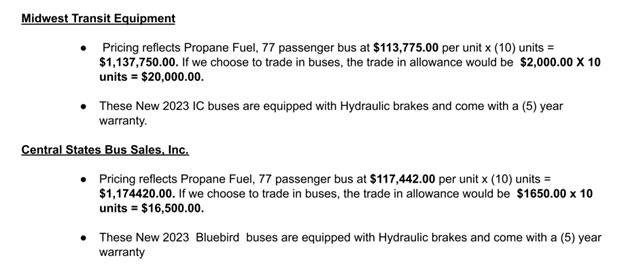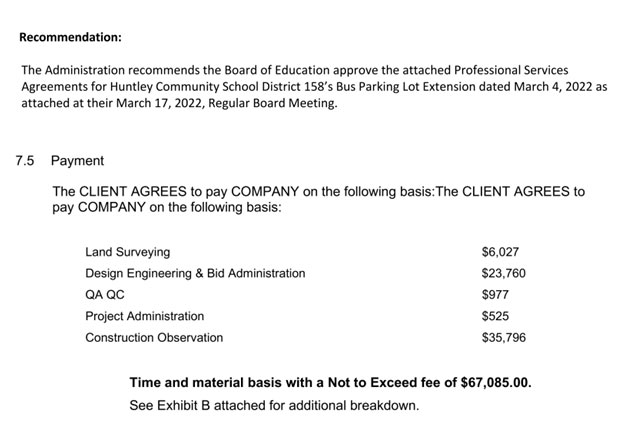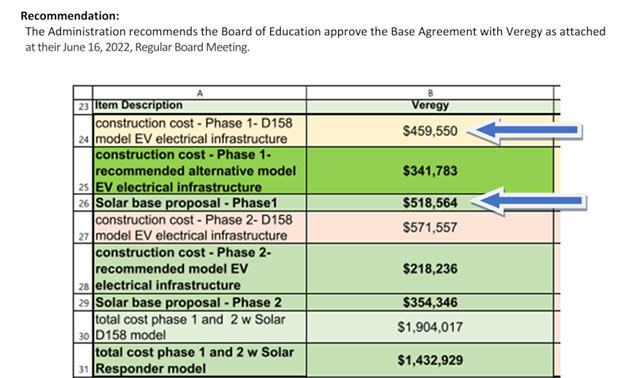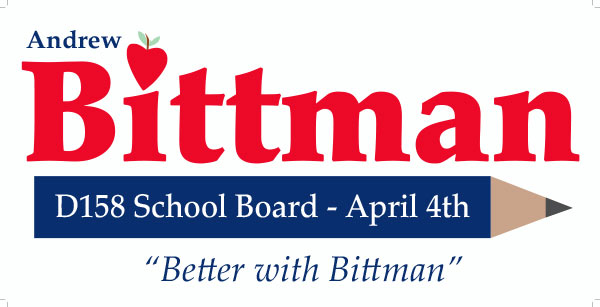Huntley D158 School Board voted unanimously four times to spend $3 million for four electric buses.

First, I am a proponent of the electrification of vehicles. The designs are much simpler, which drives down maintenance and ultimately should drive down the cost of the vehicles. This does not mean we should invest in them for school buses, though — at least not yet.
D158 wants to be an early adopter, but it’s really just going to cost taxpayers more in the long run with no benefit to the mission of the district: To educate our kids.
This will be a long post, so read along as I break apart the costs involved into moving to the electric buses that this current board went forward with — and as usual, asked very little about.
The first thing you need to know is the current cost of a propane bus (which is our current standard) is about $115,000. So, this is our baseline.

The price of each electric bus, including the charging equipment from the bus company, is $347,537. So that is quite a difference.


The district will point out there is a 75% State grant covering a significant amount of the cost, but there is a problem with this approach.

First, I am a federal taxpayer, a state taxpayer, and a property tax payer. So, no matter how you look at it – the taxpayers are footing the bill.
We know we are in $31 Trillion of debt, and we also know Illinois is one of the worst financial state governments in the country. I don’t want to overpay for a bus. It’s that simple. The Board of Education should have also had this mindset too. But don’t worry — we are focused on academics, remember?


Let me stop right there. Why didn’t anyone ask why an electric bus costs THREE TIMES what a standard bus costs?
A Tesla does not cost THREE TIMES what a comparable vehicle costs. By buying these buses at these prices, it sets the future market price at a much higher price. Yet, this was approved with a 7 to 0 board vote.
The next thing you need to do is redesign your bus depot. This starts with an architecture quote. D158 spent $67,000 on this quote alone, which was also approved 7 to 0.

Since you have the extra space, and you love solar, you ask for a very nice charging setup and solar panels to harness the sun. The cost of this, for Phase 1, is $978,114. And again, the board voted to approve this 7 to 0.

The civil engineers came back with what it would cost to update the parking lot. The recommendation was to move forward with $1.122 million in updates.
Now, it’s not clear to me if all of this is because we will have the EV buses.

Only the base bid is for the EV’s so we can’t include the whole amount, but it is still $642,500 to expand the bus depot for the new buses.

So, D158 will buy 4 buses and all of the associated infrastructure for $3.029 million. But we will get a grant from our state taxes for a little over $1 million.
There are savings for electric buses over propane and diesel which the bus company estimated it to be $7,500 per bus per year. It will take a long time to make up the $1.55 million difference with the propane buses. We could have spent $460,000, but our board approved $3.029 million (not including the grant money.)
Meanwhile, in December we had three bus drivers resign. We’re told that we don’t have money to pay our bus drivers more, but money for buying more buses? We did — and they want to buy 8 more.
What do you think — should we?
Please vote for Andrew Bittman on April 4th.
Bring common sense back to the D158 board room.




